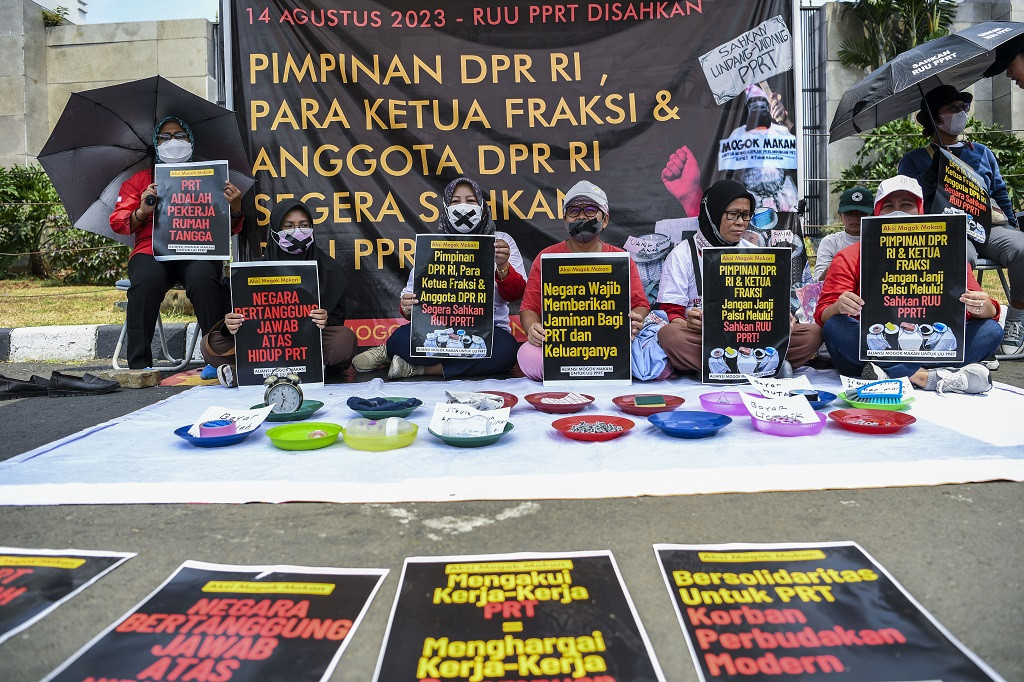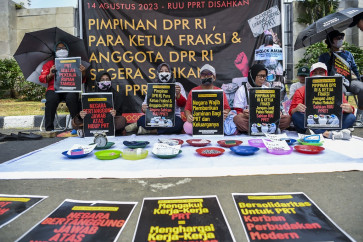Popular Reads
Top Results
Can't find what you're looking for?
View all search resultsPopular Reads
Top Results
Can't find what you're looking for?
View all search resultsIt’s time to recognize domestic workers as essential
The President's public pledge last month to prioritize passage of the bill on protection for domestic workers presents an unheralded opportunity to break the cycle of invisibility and injustice and recognize domestic workers as an essential force in the economy.
Change text size
Gift Premium Articles
to Anyone
T
oday, on International Domestic Workers’ Day, we mark 14 years since the adoption of International Labour Organization (ILO) Convention No. 189 on Decent Work for Domestic Workers, a landmark global commitment to uphold the rights and dignity of those who perform paid work in private homes.
The convention affirmed a simple truth: Domestic workers are workers. They deserve the same protections, fair wages and respect afforded to any other profession.
Yet across much of the region, this truth remains ignored. Domestic workers continue to be excluded from national labor laws and social protection frameworks, leaving millions without a safety net when they are most vulnerable.
Adopted in 2011, ILO Convention No. 189 was a historic step forward. It established global labor standards that recognized domestic work as real work and extended to domestic workers the fundamental rights other workers take for granted: fair wages, regulated working hours, adequate rest, social security and protection from abuse and harassment.
As both a legal instrument and a moral call to action, the convention urges governments to formalize domestic labor, ensure safe and equitable working conditions and combat exploitation and discrimination.
In Indonesia, where millions of domestic workers remain unprotected, the ratification and implementation of ILO Convention No. 189 is long overdue. Alongside ratification, the urgent passage of the long-crafted and debated national legislation like the Domestic Workers Protection Bill will affirm Indonesia’s commitment to dignified and equitable labor practices.
The journey to enact the bill has been long and challenging. First introduced in 2004, the bill aims to provide legal recognition and protection for domestic workers. Although it was officially designated a House initiative in March 2023, it faced repeated delays and has yet to be prioritized in the national legislative agenda.



















